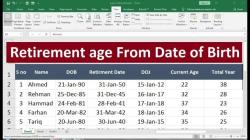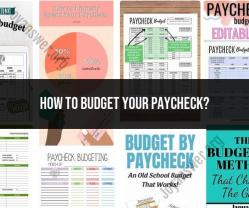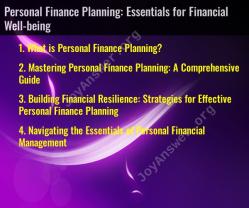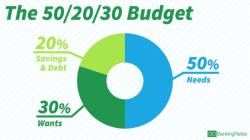What should I do with my pension?
Deciding what to do with your pension is a significant financial decision that depends on several factors, including your age, financial situation, retirement goals, and risk tolerance. Here are some steps and options to consider:
Assess Your Current Financial Situation
- Review Your Financial Goals: Determine your short-term and long-term financial goals, including your retirement lifestyle, healthcare needs, and any major expenses.
- Evaluate Your Retirement Needs: Estimate how much money you will need in retirement. Consider factors such as living expenses, healthcare costs, travel plans, and inflation.
Pension Options
- Leave It in the Pension Plan: If you are satisfied with the performance and management of your current pension plan, you can leave your funds where they are. This option may offer stability and continued growth.
- Transfer to a New Pension Plan: You might have the option to transfer your pension to a new plan that offers better benefits, lower fees, or more investment options. This is often referred to as a pension transfer or rollover.
- Take a Lump-Sum Payment: Some pension plans offer the option to take a lump-sum payout. This gives you immediate access to your funds, but it requires careful management to ensure you don't outlive your savings.
- Purchase an Annuity: An annuity provides a steady income stream for life or a specified period. This option can offer financial security, but it's important to understand the fees and terms associated with annuities.
- Drawdown or Withdrawal Plan: Some pensions allow you to withdraw funds as needed. This option provides flexibility but requires careful planning to ensure your funds last throughout retirement.
Considerations for Each Option
- Investment Performance: Compare the historical performance and future potential of your current plan versus any new options.
- Fees and Charges: Be aware of any fees associated with transferring your pension or managing your funds.
- Tax Implications: Understand the tax consequences of taking a lump-sum payment, transferring funds, or receiving regular payouts.
- Flexibility and Control: Consider how much control you want over your investments and the flexibility each option provides.
- Risk Tolerance: Assess your comfort level with investment risk and choose an option that aligns with your risk tolerance.
Seek Professional Advice
- Financial Advisor: Consult with a financial advisor who specializes in retirement planning. They can provide personalized advice based on your specific situation.
- Pension Plan Administrator: Contact your pension plan administrator for detailed information about your options and any associated processes.
- Tax Professional: Speak with a tax professional to understand the tax implications of your pension choices.
Monitor and Adjust Your Plan
- Regular Reviews: Regularly review your retirement plan to ensure it remains aligned with your goals and financial situation.
- Adjustments: Be prepared to make adjustments based on changes in your financial circumstances, market conditions, or retirement needs.
Making informed decisions about your pension can help ensure a financially secure and comfortable retirement.
What are some recommended strategies for managing one's pension funds?
Managing pension funds effectively requires a long-term perspective and balancing risk with potential rewards. Here are some recommended strategies:
Develop a Solid Investment Plan:
- Investment Policy Statement (IPS): Create an IPS outlining your risk tolerance, investment goals, and time horizon. This will guide your asset allocation and investment decisions.
- Risk Assessment: Honestly evaluate your risk tolerance. Are you comfortable with market fluctuations, or do you prefer a more stable approach?
Asset Allocation and Diversification:
- Spread Investments Across Asset Classes: Don't put all your eggs in one basket. Diversify across asset classes like stocks, bonds, real estate, and potentially alternative investments based on your risk tolerance and IPS.
- Rebalance Regularly: Review your portfolio periodically and rebalance it as needed to maintain your target asset allocation.
Investment Selection:
- Low-Cost Index Funds: Consider low-cost index funds that track broad market indices. These offer a diversified and cost-effective way to invest for the long term.
- Actively Managed Funds: Actively managed funds may outperform the market, but they also come with higher fees. Carefully research these options before investing.
Minimize Fees:
- Fees erode returns over time. Look for low-cost index funds and investment options with minimal fees.
Stay Informed:
- Market Knowledge: Stay informed about general market trends and economic conditions, but avoid chasing short-term gains.
- Fund Performance: Regularly monitor your pension fund's performance and make adjustments as needed based on your IPS.
Seek Professional Help:
- Financial Advisor: Consider consulting with a qualified financial advisor who can help you develop a personalized investment strategy for your pension funds.
Additional Considerations:
- Contribution Strategies: If applicable, explore contribution options to your pension plan to maximize your retirement savings.
- Employer Match: Take advantage of any employer matching contributions to your pension plan. This is essentially free money for your retirement.
- Tax Implications: Be aware of any tax implications associated with your pension plan contributions and withdrawals.
Remember, this is a general overview, and the best strategies for managing your pension funds will depend on your specific circumstances. It's important to do your own research and consider seeking professional financial advice.












